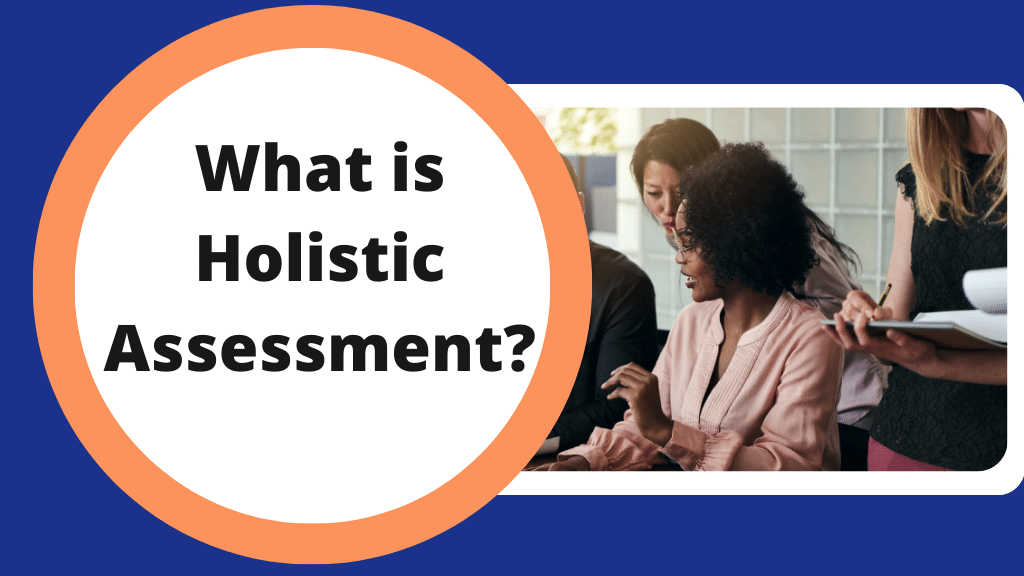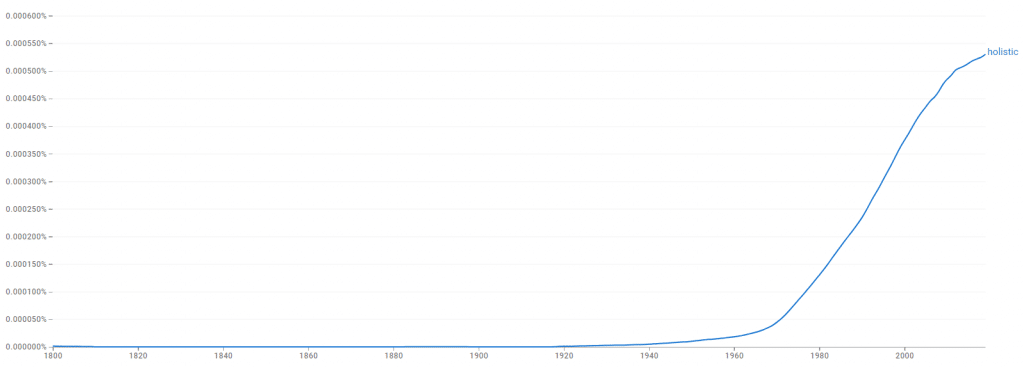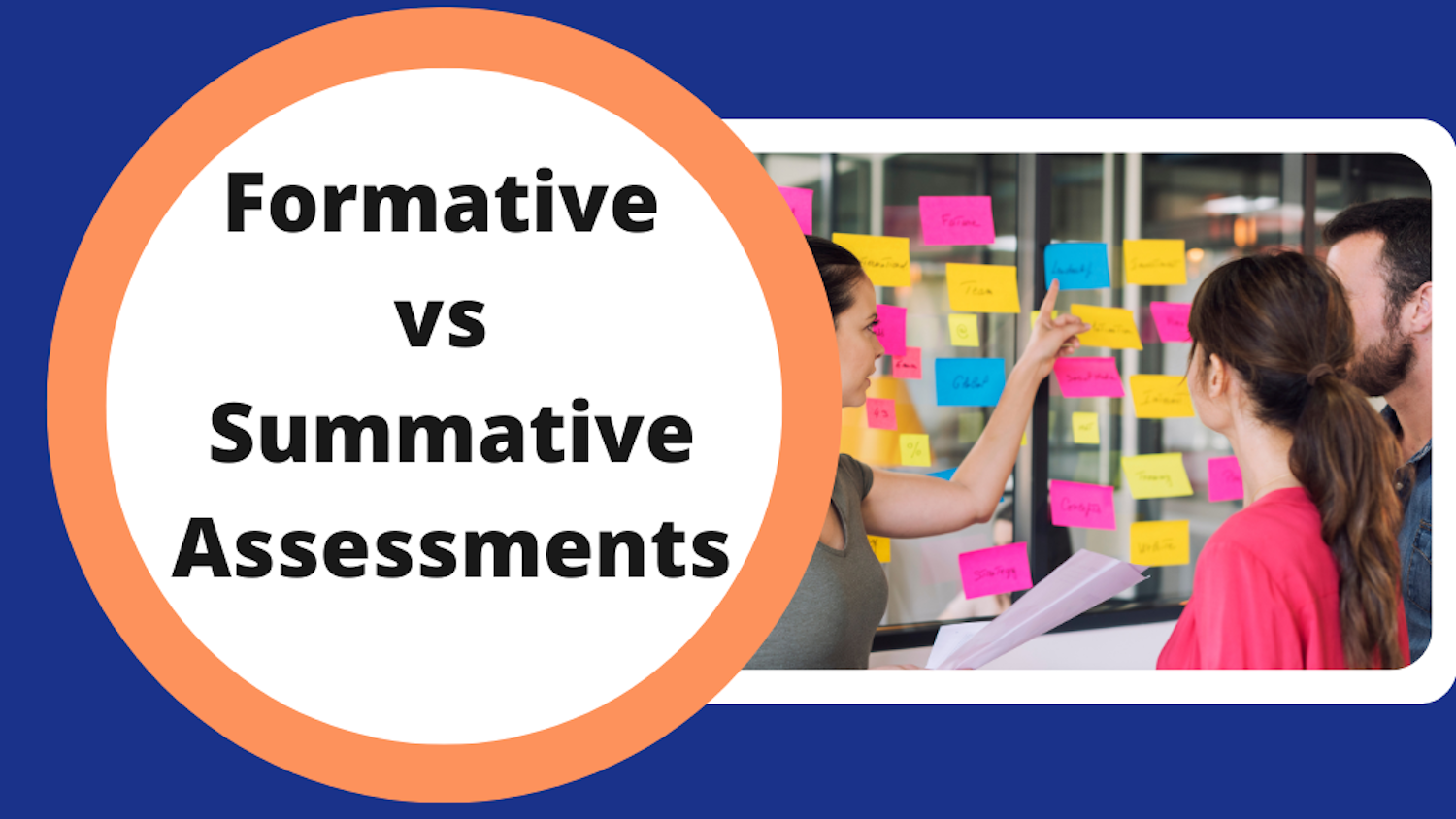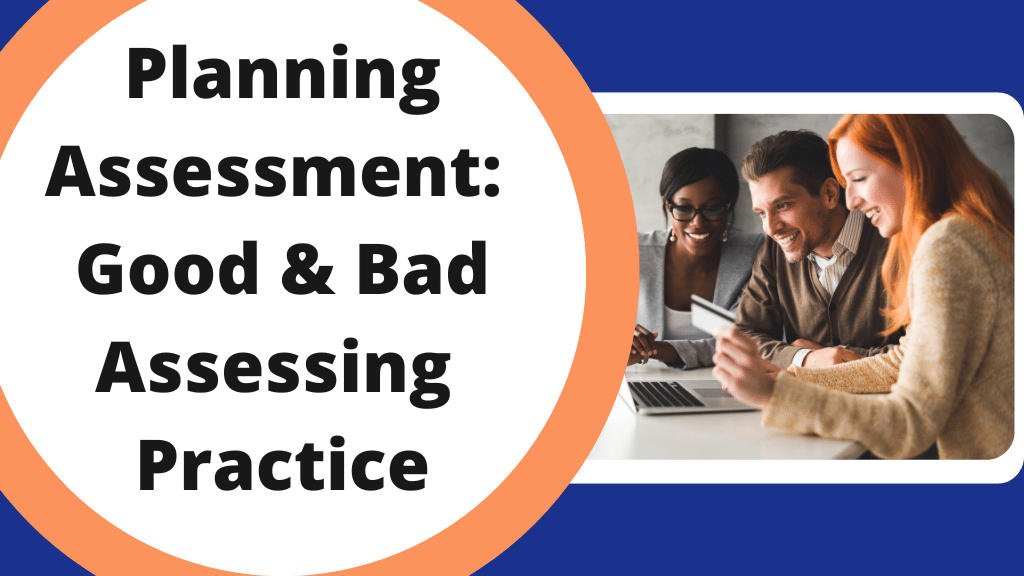February 15, 2024
What is Holistic Assessment in the Education Sector?

You’ve probably heard the term ‘holistic assessment’ thrown about in educational circles.
This method of assessment is gaining significant recognition and popularity in both the academic and professional world. Whatever walk of life you’re in, the word “holistic” is likely a buzzword you’ve heard before. A quick glance at this chart shows the written use of the word holistic has shot up in recent years.

Source: Google Ngram Graph demonstrates the use of the word ‘holistic’ over time.
Yet, it’s a concept that still seems shrouded in mystery for many. But here’s the thing: it’s a tool that can potentially revolutionise the learning experience.
What is Holistic Assessment?
So, what does holistic assessment mean in your role as an assessor? “Holistic” means treating as a whole rather than just an individual part. Perhaps we should consider returning to the more old-fashioned spelling of “wholistic” to clarify what the word means!
Think of holistic assessment as a doctor’s approach, treating the whole patient, not just symptoms. Similarly, this method assesses all aspects of a learner, not just individual components. Consider how you could evaluate the candidate as a whole, considering their daily activities, work routine, course attendance, and all the different learning outcomes and assessment criteria they need to meet.
When you consider all these factors from the point of view of an assessor, you’ll often see that assessments can be carried out in a much more integrated way than you might be used to.
Benefits of Holistic Assessment
There are several benefits to a holistic approach to assessment. These benefits are not limited to you as the assessor but also extend to the students and, potentially, to their employers and your training centre.
Time Efficiency
One of the most significant advantages of holistic assessment is that you can often find opportunities to cover several learning outcomes on one occasion without having to devote separate assessments to each one. This is particularly useful if you have candidates that need assessing against related learning outcomes for both knowledge and skills, e.g. knowing how a process works and how to carry that process out.
For example, before the assessment, plan some questions to ask verbally that cover the knowledge elements, and then schedule a visit to the candidate’s workplace to observe the skills element – especially if it’s a skill they use as part of their everyday work routine. Once you’ve observed them and covered the required skill element, you could follow up with the related questions you have already planned, which will cover the knowledge element. As a result, covering both in one go minimises the time you and the candidate have to spend.
Avoiding Duplication
In many assessments, particularly when observing someone in a work environment or evaluating their demonstration of a specific skill set, candidates often talk to you while performing the task. This ensures the assessment is less disruptive to the candidate as this is their regular routine, and you aren’t interrupting their typical workday.
This dialogue frequently encompasses independent knowledge learning outcomes related to the task they’re undertaking, e.g. “When I’ve done this, I’ll readjust the settings for the next session.” or “Once I’ve carried out my patient checks, I’ll update their records and inform the doctor on duty.” If you plan to include both the knowledge and practical skills in one assessment, you can avoid repeating the same information with a holistic assessment.
Reducing Stress
As assessors, we are aware that many candidates find upcoming assessments stressful. Even though we do our best to reassure candidates and mitigate this, many people still find the process stressful and draining. If you can reduce the number of assessments candidates have to take, you’ll reduce the time they’ll worry about forthcoming assessments.
Supporting Diverse Learning Styles
It’s widely recognised that candidates have different ways of learning. Implementing holistic assessments allows them to demonstrate their understanding in ways that suit their strengths and individual needs. For example, a candidate who may struggle in a traditional written test learning environment can thrive where they can exhibit their occupational competence, learning and deeper understanding in real life.
Engagement and Motivation
Candidates are more engaged and motivated when they see that their efforts in all areas of learning are recognised and valued during the assessment process. If they can see that they are making good progress towards gaining a qualification or completing a course, holistic assessment is an excellent way for them to feel that they are achieving since they can get through multiple learning outcomes.
How to Plan a Holistic Approach to Assessment
Exploring holistic assessment for candidates allows you to appraise various learning outcomes in one go instead of several separate assessments. The process can occur without a specific assessment session, through observations at the workplace or even during a course, being able to observe everyday tasks whether or not you’re present. These assessments are holistic because you are looking at the candidate’s experience and activities as a whole.
In contrast, more traditional assessments tend to focus on individual parts of what a candidate does or concentrate on single aspects of their knowledge. You might also find several related learning outcomes you could assess together in one event. This could be for situations where you need to consider, for example, that a candidate knows the importance of carrying out a particular process. A separate requirement is that they know what steps to take when they’ve completed that process.
As the assessor, if having a professional discussion with the candidate would be a suitable assessment method for knowledge outcomes, you could arrange one professional discussion to cover both. You might already carry out holistic assessments, even if you don’t usually refer to them by that name, as any situation where you assess multiple outcomes through the same activities could be called a holistic assessment. With some additional planning and forethought, as well as liaising with your candidate, you should be able to identify opportunities to carry out holistic assessments – which could well be your advantage.
Carlton Training’s Commitment to Quality Assessment
At Carlton Training, we are dedicated to providing top-quality assessor courses, including the Level 3 Certificate in Assessing Vocational Achievement (CAVA), designed for those aspiring to become qualified assessors in any sector. You can book the CAVA course online and get started today, or contact our friendly team for more advice on the best assessor qualification for you.
Next ›‹ Previous
Back to Blog








